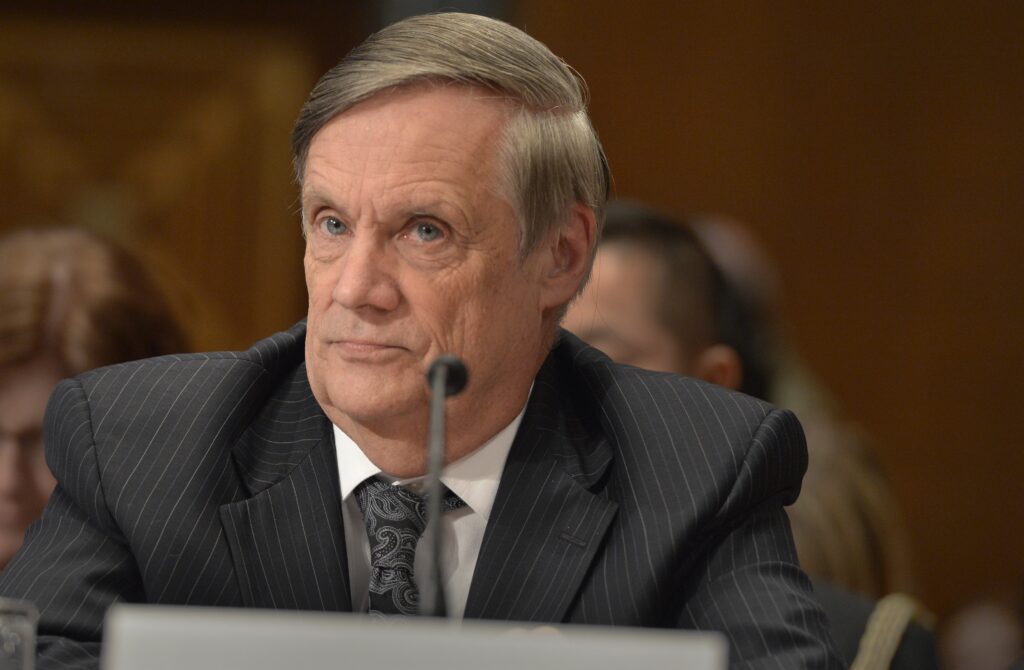Hale Holds Out (Slim) Hope For Sequester Deal
Posted on

Robert Hale
WASHINGTON: The former top budgeteer at the Pentagon says he’s clinging to hope for a sequestration deal this fall — but he admitted the signs so far aren’t looking good. “I’ve got my fingers crossed for when Congress come backs next week,” Bob Hale told me this morning.
Yesterday, the former Pentagon comptroller starred at a Brookings Institution event to roll out a combination budget study and personal memoir on Budgetary Turmoil at the Department of Defense from 2010 to 2014. This morning, he called me to discuss the prospects for the two-year budget deal (covering 2016 and 2017) that his report says must be concluded “no later than the next month or so.”
“I remain hopeful but less hopeful than I was a few months ago,” Hale told me. “Things aren’t going especially well. To my knowledge, there are no discussions going on with the Congress or the administration, and the Planned Parenthood issue will add to the partisanship.”
“With Congress, [though], it’s always darkest just before the dawn,” he went on, since legislators love to use time pressure to force last-minute compromise. Partisanship “is worse than it was 20-30 years ago, it’s harder to make a deal, and definitely the chaos level is higher, [but] all is not lost.”
The best sign we could see when Congress reconvenes, Hale told me, is for key members to step up — with the explicit or tacit blessing of leadership — and start working out a deal, much as Sen. Patty Murray and Rep. Paul Ryan did two years ago. There’s no visible evidence such negotiations are underway yet, he acknowledged, “but these things are best done quietly.”
The worst sign, he said, would be for the partisan battle over Planned Parenthood to escalate. That could not only poison the waters for any bipartisan cooperation. As a matter of simple scheduling, the Planned Parenthood debate could run out the clock: There are just 10 legislative days left before the fiscal year ends on September 30. Without at least a stopgap budget deal before October 1st — if only a much-dreaded continuing resolution — the government shuts down.
A year-long continuing resolution, which would simply put the government on autopilot at 2015 funding levels, would be a “nightmare,” Hale made clear. He doesn’t think it’s politically possible to overturn the Budget Control Act this year or next — that will have to wait for the next president, he said — but he’s hoping for both more money than the BCA caps allow and more predictability than the last five years have offered.
“Certainly, the last five years have been unprecedented in the level of budget turmoil, I never remember anything like it,” Hale said. So, looking forward, he said, “the one thing that strikes me as critically important is to get a two-year deal, [so] we won’t have to do this again next year, in the endgame of a presidential election.” (He wouldn’t reject a one-year deal if two years proved impossible, he acknowledged).
Getting adequate funding levels is at least as important as getting certainty, however, Hale went on. “We have certainty, I guess, with the Budget Control Act such as it is, [but] the funding level, given the state of the world, doesn’t seem adequate,” he said. He’d consider the president’s budget request for 2016 — prepared after Hale left office — a good level.
So which is more important, greater certainty or a bigger budget? Faced with a choice between either settling for a deal with inadequate funding — knowing that you’d at least have certainty — or pushing for a deal with adequate funding — at the risk of getting no deal at all — Hale said he’d choose the latter. If it were up to him, Hale said, he’d shoot for “added funding, even at the cost of uncertainty.”
Subscribe to our newsletter
Promotions, new products and sales. Directly to your inbox.
